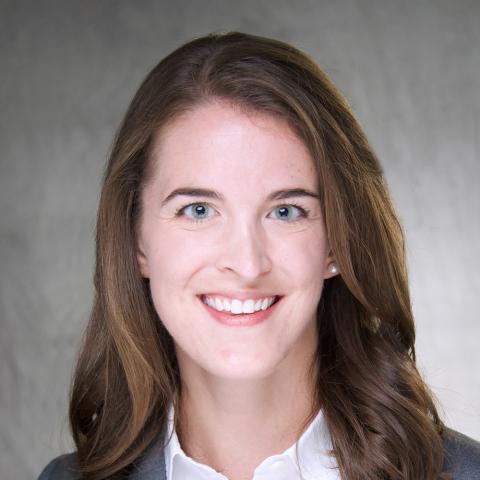Table of ContentsClose
At age 97, James Tyler is not about to change, especially when it comes to his personal physician.
He attributes his longevity, at least in part, to his relationship with his doctor, Peter Densen, MD, professor emeritus of internal medicine in the University of Iowa Carver College of Medicine who has cared for Tyler for many years. They describe their physician-patient relationship as equal parts wry humor, tough love, and live-and-let-live practicality.
The big picture
Peter Densen, MD, (left) visits with James Tyler, former chair and CEO of Atlantic Bottling Company, at the company’s facility in Des Moines, Iowa. The two share a genuine friendship and lively doctor-patient relationship.
“He’s not only my doctor, he’s my friend,” Tyler says. “If all doctors were more like him, it’d be a hell of a lot better world, I’ll tell you that.”
Educating medical students to be more like Densen is, in fact, Tyler’s aim—through a scholarship fund that supports students who are committed to fostering the “care” in health care.
Making a connection
Tyler’s relationship with Densen began when, having recently stepped down as executive dean of the college, Densen agreed to accept responsibility for the health care of a handful of patients whose previous physician had left the university.
One of those patients was Tyler, then retired as the second-generation chair and CEO of Atlantic Bottling Company in Atlantic, Iowa—the state’s primary bottler, canner, and distributor of Coca-Cola products.
“It was immediately obvious,” Densen recalls, “that Jim was a guy who had lived life to the fullest—growing up in rural Iowa, flying fighter missions in World War II, and realizing his goal of becoming Iowa’s major Coca-Cola bottler. I’m pretty thorough when I take a medical history, and that tends to resonate with patients. So, Jim and I got off to a good start, and from there we were able to start digging into some of the health issues he was facing at the time.”
Densen’s role includes coordinating the overall care Tyler receives from different specialists and subspecialists at UI Hospitals & Clinics. Part of this involves reviewing Tyler’s symptoms and going over his various medications. In addition, Densen diagnosed Tyler with chronic lymphocytic leukemia and, later, identified and treated low-grade urinary sepsis as the cause of his new and persistent low blood pressure.
When Tyler became anemic six months following a pacemaker revision, Densen was able to pinpoint a change in anticoagulation medication that led to slow gastrointestinal blood loss. It was a case of not letting individual specialty treatment obscure the need for a holistic approach to the patient. Densen’s attention made a huge difference in the outcome for Tyler.
“The confidence Dad has in Dr. Densen is so strong. Just keeping track of his care among the various specialists Dad sees—it’s priceless,” says Tyler’s daughter, Jayne Tyler, who, along with her siblings, often accompanies Tyler to his medical appointments.
Lessons from a patient
About a year or so after he first started seeing Tyler, Densen was asked by colleagues who were teaching a course module on blood pressure if he would identify a patient with hypertension who would be comfortable interacting with students and be willing to share their medical history and lifestyle habits.
“Given his personality, and especially his humor, I immediately thought of Jim as the right person for this invitation,” Densen says.
The role suited Tyler perfectly. Densen remembers part of the classroom exchange going something like this:
Densen: What do you like to eat?
Tyler: When I go out, I order a 16-ounce steak, and I like it bloody.
Densen: What about vegetables?
Tyler: Never touch ’em.
Densen: Fruit?
Tyler: I love fruit cocktail, especially the syrup.
Densen: Alcohol?
Tyler: Sure. A good glass of bourbon.
Densen: Do you exercise?
Tyler: Why would I do that?
The students were amused, but some were also aghast. They peppered Densen: Why hadn’t he forced Tyler to change his diet and lifestyle?
Densen recalls telling the students that it was not as though lifestyle changes had not been discussed and recommended. Also, Tyler was in his early 90s—well past the average life expectancy of a white male in the U.S.—and with an uncertain, but relatively limited, number of years left to go.
“From my perspective, Jim was riding a winning horse,” Densen says. “At this point in his life, why disrupt elements that provided joy for him?”
Tyler has participated in other classroom sessions with Densen over the years, each geared to demonstrate to students the importance of assessing and treating patients as individuals—not just according to clinical guidelines.
For Tyler, the sessions underscored the value of collaboration between doctor and patient. Moreover, they reinforced the idea that listening, empathy, and communication skills should be a fundamental part of medical students’ learning experiences.
“You need to have skills in dealing with people just like you need the medical skills,” Tyler says. “If you can’t talk to and get along with the patient, you’re going to have a hard time taking care of them.”
An unexpected gift
In December 2020, Tyler returned to UI Hospitals & Clinics for an appointment with his cardiologist; Densen sat in on the clinic visit. When they were finished, Tyler presented Densen with a check for $10,000 in support of the Densen-Burton Scholarship Fund for medical students.
One month later, Tyler met with Densen and a representative from the UI Center for Advancement. This time, he came with even bigger news: Tyler would donate shares of Coca-Cola stock—valued at approximately $540,000—to the scholarship fund.
“To say I was surprised would be an understatement,” Densen says, “because it’s not every day that someone spontaneously gives such a large donation for medical education, and specifically for scholarships.”
To Tyler, he was simply meeting a need.
“Lots of people give money for buildings—bricks and mortar, that kind of thing—and I’m not the first one to give money to deserving people at the university,” Tyler says. “But this was different. This is something that will really help the medical students, like the ones we saw in the classroom. The students are what it’s all about.”
Tyler hopes his donation will spur others to support student scholarships, especially the Densen-Burton Scholarship Fund, in the Carver College of Medicine.
“I can’t think of a better way to help the medical school,” he says. “By helping these young people cover the cost of their medical education, it’s an investment in the future.”
Jim Tyler going strong
Born in 1924, James R. Tyler was destined to follow in the footsteps of his grandfather, who established a successful family ice cream business in the 1880s, and his father, who helped add a line of flavored soda water products—a move that would transform the company into a burgeoning Coca-Cola bottling, canning, and distribution enterprise.
As a boy growing up in the southwest Iowa town of Villisca, Tyler drove a horse-drawn cart, selling ice-cold Coca-Cola for 5 cents a bottle.
During World War II, he was stationed in Italy as a fighter pilot in the Army Air Corps. He married his high school sweetheart, Dorothy Hendrickson, in 1947. He graduated from Simpson College in Indianola, Iowa, in 1949. And he worked his way up in the family business, ultimately serving as president and CEO of Atlantic Bottling Company in Atlantic, Iowa—the state’s primary bottler and distributor of Coca-Cola products. Today, his son, Kirk, serves as the company’s chair and CEO.
Tyler has devoted his life to his family, his community, and his industry. He’s served on the Atlantic School Board as well as the board of the National Soft Drink Association, the Carbonated Beverage Institute, and the Iowa Association of Business and Industry, among other organizations. He’s been a member of the Board of Regents, State of Iowa, and he’s a long-time supporter of the University of Iowa and the Iowa Hawkeyes.

The Densen-Burton Scholarship
Providing financial support for medical students to embrace the value of doctor-patient relationships is one of the goals of the Densen-Burton Scholarship Fund.
The fund is named for Peter Densen, MD, professor emeritus and former associate dean for student affairs in the Carver College of Medicine, and Stephanie Burton, who lived with breast cancer for 20 years while raising two sons and building a successful career as a marketing executive in Iowa City.
The Densen and Burton families shared a long friendship dating back to their undergraduate years. Throughout Burton’s illness, Densen was a friend and advisor until her death in 2003.
Burton credited doctors at UI Hospitals & Clinics for the care she received and the quality of life she enjoyed as a cancer patient, but she also recognized the need for greater emphasis on empathy, communication, and humanism in medical practice and medical education. Over the years, and with Densen’s encouragement, she spoke to hundreds of first-year medical students about how cancer had changed her life. Her talks helped heighten students’ sensitivity to patients’ needs and emphasized how compassion informs and complements patient care.
Since its inception in 2003, the Densen-Burton Scholarship Fund has provided over $115,000 in support to 39 Carver College of Medicine students, such as Anne Smazal (17MD), who was awarded scholarships for the 2014-15 and 2016-17 academic years.
“Receiving the award felt like a challenge to myself to maintain a high standard of compassionate care throughout my career,” Smazal says. “I was lucky to have several mentors in medical school at Iowa—including Dr. Densen—who modeled professionalism and kindness in every situation.”
She also emphasizes the importance of scholarship support in helping defray medical school debt.
“Student loans were necessary for me—and for many other medical students—to be able to go to medical school,” Smazal says. “Thanks to the support I received from the Densen-Burton Scholarship Fund, I was able to minimize my loan amounts for the years I received the awards.”
Smazal is currently a fellow in neonatal-perinatal medicine at Northwestern’s Feinberg School of Medicine.
“Five years after graduating medical school, I am a pediatrician training to care for very sick or premature newborns in the Neonatal Intensive Care Unit (NICU),” she adds. “Many of my patients have complicated and lengthy stays in the hospital, which is incredibly hard for their parents. By connecting with families and earning their trust, I hope to make the NICU experience a little less terrifying. Prioritizing these family connections has also made my career more rewarding, as I am consistently reminded of what a privilege it is to take care of these tiny patients.”

Make a contribution
To make a contribution to the Densen-Burton Scholarship Fund or to learn more about the fund and how you can help, contact Sarah Russett at the UI Center for Advancement at 800-648-6973 or sarah.russett@foriowa.org.
